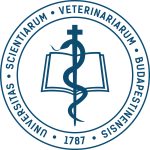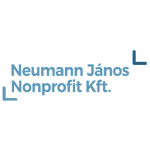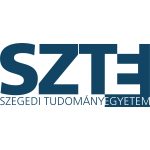NATIONAL LABORATORY FOR HEALTH SECURITY, HUNGARY
The vision of the National Laboratory is to provide the scientific basis for data and analysis-based decision making in the fields of health, disease control and ecosystems in Hungary. The three areas are closely intertwined and new synergies will be created through surveillance, big data methods and modelling.
NEWS

An epidemiological warning has been received: the excess deaths in Hungary last December could have been prevented
Járványügyi figyelmeztetés érkezett: a tavaly decemberi magyarországi többlethalálozás megelőzhető lett volna. Oroszi Beatrix kollégánk a Portfolio-nak adott interjújában többek közt elmondta, hogy a 65 éveseknél idősebbek körében tavaly decemberben tapasztalható 10%-os többlethalálozást el lehetett volna kerülni, valamint hangsúlyozta, hogy az oltásokkal kapcsolatos bizalomvesztés a tíz legjelentősebb népegészségügyi probléma egyike jelenleg a világon. Tovább (Fotó: Berecz Valter – Portfolio)

Report on the XVIII. IME Health Policy and Healthcare Systems Conference
A Semmelweis Egyetem Egészségügyi Menedzserképző Központ (SE EMK), az Egészségbiztonság Nemzeti Laboratórium Adatvezérelt Egészség Divízió vezető intézete és a Magyar Egészségügyi Menedzsment Társaság (MEMT) közös szervezésében 2024. június 12-én rekord számú résztvevő mellett zajlott a XVIII. IME Egészségpolitika és egészségügyi rendszerek konferencia. Az előadók és a kerekasztal-beszélgetés résztvevői az egészségügy számos területére rávilágítottak. A pozitív példák, előrehaladás mellett a kihívások

Media coverage of the Applied Mathematics Conference
2024. június 3. és 5. között került megrendezésre az AMK, a magyarországi alkalmazott matematikai kutatások csúcskonferenciája, melynek ezúttal a Szegedi Tudományegyetem Bolyai Intézete adott otthont. Az eseményről több cikk is tudósít:
Divisions
Division of Mathematical Epidemiology
Our work integrates the competences of various disciplines through the application of mathematical methods for modelling infectious diseases: mathematics, epidemiology, biostatistics, data science, network science, medicine, systems biology, control theory, computer science, quantitative social sciences. We support preparedness, strategic planning, rapid response, and evidence informed decision making in health emergency through innovative surveillance systems and data guided analysis.
The goal the Division of Invasion Biology is to provide a coherent approach across disciplines to tackle the challenges of invasive species. With a particular focus on species that play a key nature conservation, economic or societal role, it will
i) document and continuously monitor invasion,
ii) understand the mechanisms behind invasion,
iii-iv) explore the ecological, social and economic impacts of invasion,
v) predict invasion processes, and
vi) test and develop methods for control of invasive species.
Division of Data-Driven Health
The Data-Driven Health Division is the domestic methodological hub for the globally trending shift to a data-driven healthcare paradigm.
Our primary objective is to promote the development of data-driven healthcare and artificial intelligence solutions in Hungary, with the driving force being our unique nationwide database integration solution on a global scale. Within our division, we focus on the development of artificial intelligence development, data mining frameworks, and on the establishment of decision support information systems. The collaborative social innovation work is implemented in partnership with Rényi Mathematical Research Institute and Neumann Not-for-profit Ltd.
Centre for Eco-Epidemiology
Our research aims to prevent infectious diseases emerging due to climate change and urbanization. We use the DAMA (Document, Assess, Monitor, Act) protocol to map the occurrence and risks of zoonotic pathogens spread by ticks in Hungary, and help prevent them. Our work ranges from ecological field activities to molecular biological technologies to sophisticated bioinformatics and epidemiological methods, but we also involve voluntary citizen science participants.






















